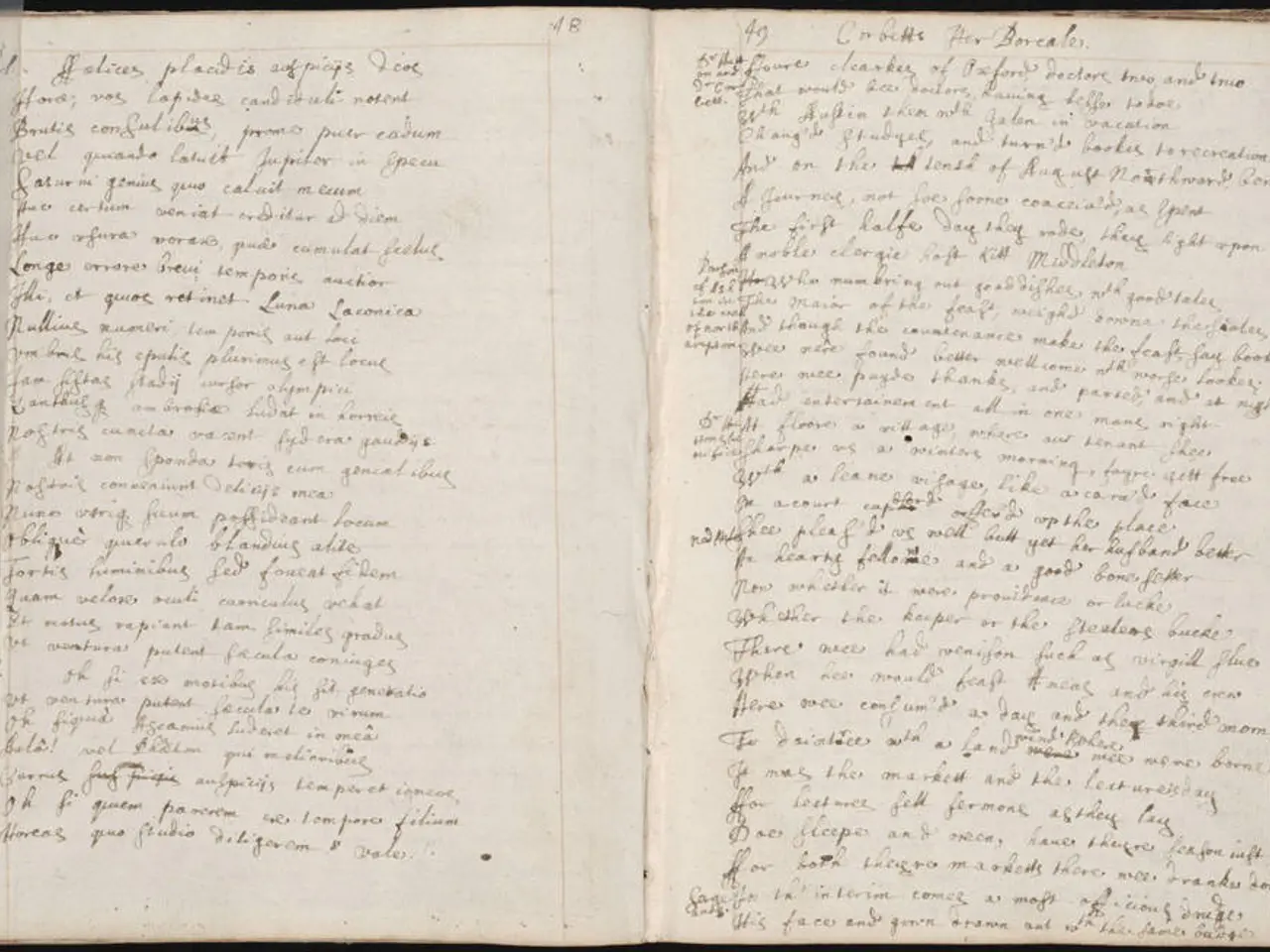Employing Evidence Responsibly in TOK Debates
When it comes to writing a compelling Theory of Knowledge (TOK) essay, the key lies in effectively selecting, analyzing, balancing, critiquing, and reflecting on evidence. Here's a guide to help you navigate this process.
Select Relevant and Varied Evidence
Choose examples that are directly aligned with your central Knowledge Question (KQ) to maintain focus. Use a range of examples, including personal experiences, real-world events, historical cases, and counterexamples, to show breadth and deepen analysis. Select examples that link clearly to Ways of Knowing (WOKs) and Areas of Knowledge (AOKs), allowing meaningful exploration of knowledge perspectives.
Analyze Evidence Thoroughly
Go beyond describing facts. Explain why particular examples matter and how they illuminate knowledge issues. Apply systematic frameworks to analyze how knowledge is constructed and validated. Relate examples to key TOK concepts like perception, bias, evidence, and justification to unpack their significance critically.
Balance Claims and Counterclaims
Present claims supported by evidence, but also include thoughtful counterclaims and exceptions. Use counterexamples strategically to challenge your own assertions and demonstrate open-mindedness and critical engagement. Compare how different AOKs or WOKs might interpret the same evidence differently, illustrating knowledge complexity and contestability.
Critique Evidence with TOK Perspectives
Question the reliability, sources, and methods behind evidence within each AOK. Consider ethical, cultural, and contextual influences on knowledge production and interpretation. Reflect on how values and perspectives shape what counts as evidence or knowledge in different contexts.
Reflect on the Evidence and Its Implications
Reflect on how your evidence supports or challenges your KQ and the broader TOK themes. Discuss the limitations or assumptions inherent in your examples and how this impacts knowledge claims. Offer insights into how knowledge evolves or why understanding evidence critically is essential for knowledge growth.
Following this process ensures your TOK essay is coherent, insightful, and demonstrates a sophisticated understanding of knowledge issues by effectively grounding abstract discussions in well-chosen and critically examined evidence.
In Summary
- Select: Choose examples aligned to your KQ, diverse in type (personal, historical, etc.)
- Analyze: Explain why examples matter, using TOK concepts and frameworks
- Balance: Provide claims with counterclaims, illustrating complexity
- Critique: Assess evidence’s reliability, bias, and cultural context
- Reflect: Consider implications, limitations, and link to TOK themes
This method aligns with expert TOK guidance emphasizing thoughtful example selection, deep analysis, balanced argumentation, and reflective criticism.
Engaging in the process of writing a Theory of Knowledge essay requires careful selection and analysis of evidence. This involves picking examples that connect to Ways of Knowing, Areas of Knowledge, and the central Knowledge Question, ensuring a broad and in-depth examination of knowledge perspectives. (education-and-self-development, personal-growth, learning)
Moreover, beyond merely describing facts, it's crucial to analyze the significance of examples critically by relating them to key TOK concepts, questioning the evidence's reliability, and reflecting on how values and perspectives shape the interpretation of evidence. (education-and-self-development, personal-growth, learning)




